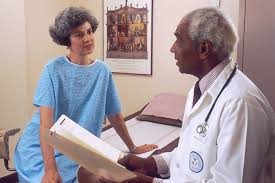Managing your health is hard enough, but it can get chaotic when you have to manage someone else’s. There a few different ways you can handle medical management of your senior without wanting to pull your hair out. If you aren’t properly prepared, then things can go poorly when there’s an emergency. You may be in charge of your senior’s medical management for years.

7 Ways to Handle Medical Management
By knowing what you are doing, you provide a better quality of life for your senior. You also reduce the stress for yourself.
1. Use a Person-Centered Approach
By focusing on the person, you use a more positive approach. It will remind you that the person’s needs are most important. This way it can improve their well-being and their quality of life.
People who are care providers, but not medical professionals, should take a holistic approach with their care. They should try to remove any barriers of the coordination of medical and non-medical care and support.
This method will make your senior feel better overall.
2. Know What the Doctors Should Be Doing
You need to keep track of what each of your senior’s doctors does. That way you know how your senior’s care is supposed to be going.
You can work together with those doctors to create a single idea of what your care goals are.
3. Talk to the Doctors
The best thing you can do for your senior is know how to take care of them. Ask doctors about the chronic conditions your senior has and how you can help them with their symptoms. Should you change anything to their house if they are living at home? Is there something you should let the community know if they are in assisted living?
Don’t be afraid to tell any of your caregivers about changes in your senior’s health.
4. Try Using Methods That Don’t Involve Pills
There are a lot of different ways to help with dementia symptoms that don’t involve pills. There is a lot of evidence showing that other methods can work just as well if not more.
We actually explore this idea more in our article “9 Ways to Help With Dementia Symptoms Without Medications.”
5. Don’t Be Afraid to Use Pills
It’s not bad to use pills when they are necessary. There are times when pills are the right solution. Make sure you talk to all your care providers about what to use and when to use them to best suit your senior.
6. Prepare for Emergencies
Often when it comes to senior care, it’s a matter of when and not if with emergencies. It’s always better to have a plan prepared so your senior can be as safe as possible during the situation.
7. Do End of Life Discussions ASAP
No one wants to talk about the end of a beloved’s life, but it needs to be done. It’s good for you to know what your senior wants and how it should be done. This will also lessen the stress on you.
Read more here.

